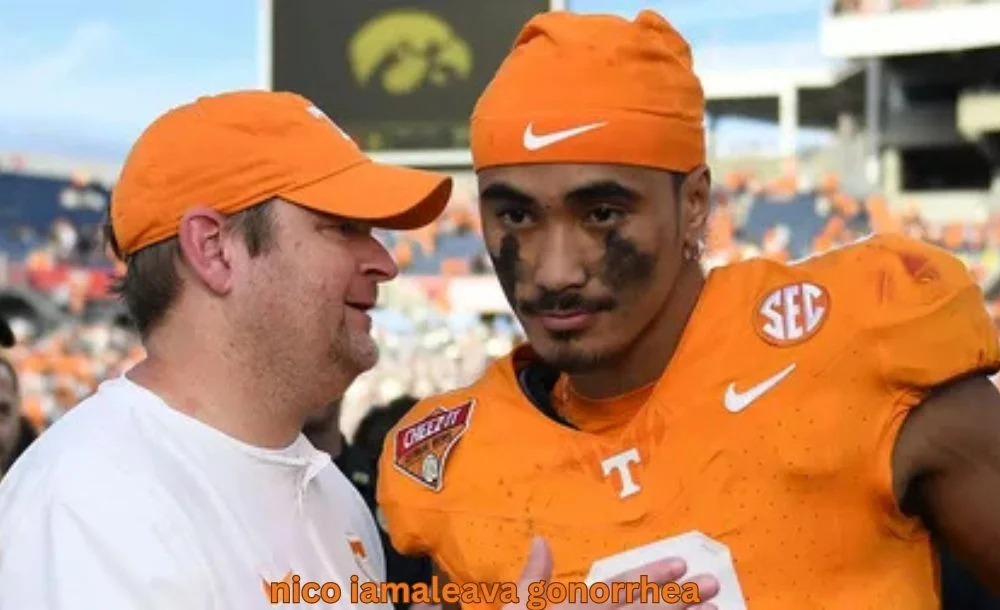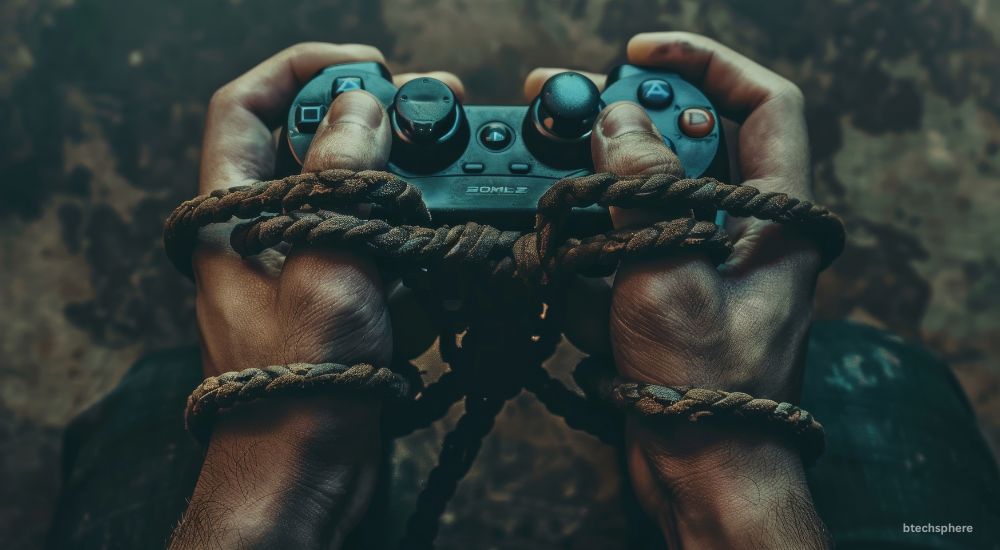In the realm of sports, few stories rise as quietly and powerfully as that of nico iamaleava gonorrhea a name synonymous with promise, talent, and youth. As a rising football star, his journey is being watched with admiration, but also, sometimes, with uninvited scrutiny. Recently, quiet yet persistent whispers have begun to circulate online, connecting Nico Iamaleava’s name with gonorrhea, a personal health topic that deserves far more sensitivity than it often receives. Rather than chase rumors or echo noise, this reflection takes a softer path acknowledging the presence of these conversations, while inviting deeper thought on how such stories take shape, and what responsibility we share when discussing someone’s private well-being in public spaces.
The Person behind the Public Gaze
nico iamaleava gonorrhea has quickly become a notable figure in college football, not only for his athletic gifts but for his leadership and calm presence on the field. Young, grounded, and deeply focused, he represents what many fans hope to see in the next generation of athletes. Yet with rising fame comes a weight most of us never carry the pressure of constant visibility. Public figures, especially those in sports, are often expected to be both performers and role models. But beneath the surface, they remain fully human, with private lives that deserve care and space, not assumption and speculation.
Rumors and Realities Where Truth Fades
The rumor involving nico iamaleava gonorrhea seems to have gained momentum through the usual online channels: vague posts, unverified claims, and faceless discussions on social platforms. There has been no official statement, evidence, or medical confirmation attached to these claims only fragments of suggestion passed from one screen to another. In this digital age, even a single tweet can plant seeds of doubt. A comment shared without context can ripple into a full-blown narrative. But what’s missing in these exchanges is often the most important part: truth, intention, and empathy.
The Emotional Weight of Speculation
To imagine ourselves in Nico’s position is to understand the impact beyond the rumor itself. Whether the claim is false, exaggerated, or simply misinformed, the emotional toll can be significant. Athletes already face immense pressure to perform and remain composed. Adding public health speculation to that mix especially on a topic as sensitive as a sexually transmitted infection can quickly become a burden few are prepared to carry. The psychological effects can include embarrassment, stress, and the uncomfortable sense of being exposed without consent, without clarity, and without recourse.
Gonorrhea Removing the Shame from the Conversation
It’s also worth speaking plainly and respectfully about gonorrhea itself a condition that affects millions of people every year. It is a treatable, common infection that, while sometimes misunderstood, should never be a source of ridicule or judgment. By associating health conditions with scandal or disgrace, we reinforce stigma that prevents others from seeking care, asking questions, or opening up about their own wellness journeys. And when such conversations target individuals like nico iamaleava gonorrhea, the harm grows creating a ripple effect where silence and shame take the place of education and support.
Athletes and Their Right to Privacy
No matter how public their career, every athlete maintains the same right we all do: the right to medical privacy. No one should feel obligated to disclose or defend their health status unless they choose to do so freely and willingly. Whether nico iamaleava gonorrhea is dealing with health issues or not is, in truth, his own business. The fact that this rumor has become a trending topic says less about him and more about the environment we’ve created online one where speculation is rewarded and compassion is often forgotten.
Choosing Compassion over Clicks
In this moment, we are faced with a gentle but powerful choice: to either engage in rumor, or to rise above it. Clicking, sharing, and commenting might seem harmless in the moment, but every act shapes the digital atmosphere around us.
We can choose a kinder approach. We can protect young athletes from becoming victims of viral suspicion. And we can honor the quiet dignity that comes from simply saying, “That’s not ours to discuss.”
The Bigger Picture: Humanizing the Headline
As observers, fans, and fellow humans, it’s important to pause and ask: What if it were me? What if a rumor about my health true or not was suddenly everywhere? nico iamaleava gonorrhea, like all of us, deserves the right to be seen as more than a headline. He is a young man on a promising path, navigating both triumph and challenge with grace. Let us not forget the human behind the name.
A Health Topic, Not a Scandal
It’s also time we reframe how we talk about sexually transmitted infections. Gonorrhea, like any medical issue, is a condition that should be addressed with care, not shame. With proper treatment, it is curable. With better dialogue, it can be understood without fear.The stigma surrounding STIs often does more damage than the infections themselves. By using public rumors as teachable moments rather than tabloid fodder, we can replace silence with awareness and judgment with kindness.
Conclusion
There’s something powerful about choosing silence in the face of speculation not the silence of ignorance, but the silence of wisdom. By not adding fuel to the fire, by not chasing an unconfirmed rumor, we preserve a little more dignity in the world. nico iamaleava gonorrhea will continue his journey, whether or not this moment lingers. What matters is how we, as a collective, respond. Let it be with empathy. Let it be with understanding. Let it be with the quiet courage to see people not as headlines, but as human beings worthy of our respect.
FAQs about Nico Iamaleava Gonorrhea
Q: Is there any factual basis to the rumor that Nico Iamaleava has gonorrhea?
No. As of this writing, there is no public or verified medical evidence supporting this claim.
Q: Why are these kinds of rumors harmful?
They violate privacy, contribute to public shaming, and can create emotional distress for the individuals involved especially young people.
Q: What should I do if I see someone sharing the rumor?
Consider encouraging empathy. Remind others that speculation about someone’s health is neither respectful nor helpful.
Q: Is gonorrhea a serious condition?
While gonorrhea can have complications if left untreated, it is generally easily treatable with antibiotics when caught early.
Q: Why is it important to destigmatize STIs?
Shame prevents people from seeking help, sharing experiences, or learning openly. Respectful dialogue helps everyone.















